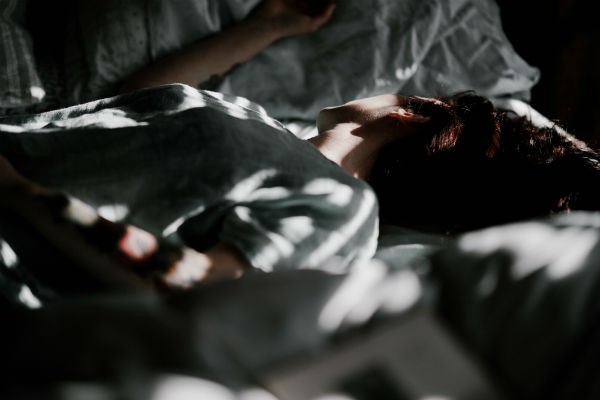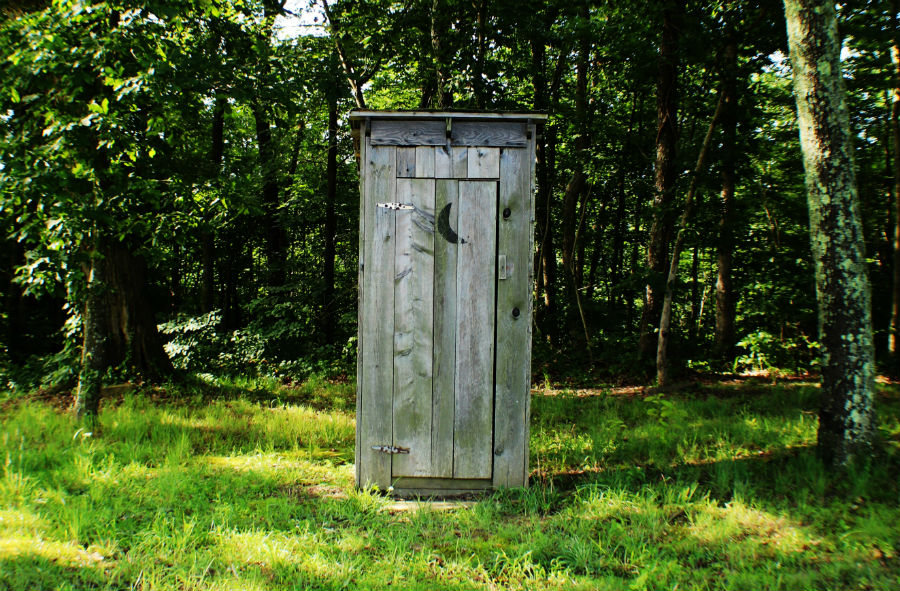There are some things you simply can’t ask your friends. How do I get this toxic friend to stop bringing me their drama? (Definitely don’t ask that to their face.) What’s this weird rash? (Unless, we suppose, your friend is a doctor.) And why do I have to pee so much at night? Definitely ranks up there.
And no, you’re not overreacting for wanting answers. Heaving yourself out of warm bed when you had found the perfect cozy position is no small sacrifice. So what gives with the frequent urination at night?
It might not actually be as simple as loading up on water before bedtime. There are a couple simple contributors to having to pee at night if you’re waking up once. But if you’re waking up two or more times to make that cold, dark trek, you’ll need to tease out whether it’s something more serious.
How many times should you have to pee at night?
Believe it or not, none. Your body produces less urine that is more concentrated at night, so most people should have no difficulty sleeping 6 to 8 hours without getting up. If you’re waking up once a night to go to the bathroom, it’s probably not a big deal. (We’ll get to the potential causes in a second.) But if it’s happening two or more times consistently, it’s probably time to see a doctor.
Consider your lifestyle first
Let’s say you’re only getting up once, but it’s happening every single night. And, understably, you’re sick of it and just want to get some damn sleep already. Fair enough. Do a mental rundown of your typical nighttime routine. When do you have your last drink before bed? Are you using the bathroom before bed, or just collapsing when you’re exhausted?
If you work out regularly and try to stay hydrated throughout the day, this might just come down to your water intake. If you’re knocking back well over a gallon a day, it’s time to reassess. Maybe you need more electrolytes in water and not more plain water. This could help you not only drink less water but also feel more hydrated than you do now. I made this switch recently and am now using Nuun Hydration tablets and Hi Lyte electrolyte supplement.
Maybe it’s the stress-busting tea
It’s easy to establish a routine before bed that gets you out of bed like clockwork. Maybe you added an evening cup of tea with one of the herbs for anxiety to your routine to ease yourself into sleep. It’s a great habit, and can potentially help you fall asleep faster. But you should probably make sure you’re hitting the bathroom before the sheets. Try shifting this schedule forward and having your tea shortly after dinner instead of right before you turn the lights off.

It could just be anxiety
We talk a lot about anxiety. That’s because there’s no part of your life in which it won’t rear its nasty head if left unchecked. And yes, it might even be waking you up at night and getting away with it. “We assume we woke up because we had to pee. While that may be the case at times, oftentimes your full bladder is an innocent bystander, and not necessarily the reason you woke up,” board-certified psychiatrist Ellen Vora, MD explained to Well and Good.
If that’s the case, it’s time for some serious anxiety management. Since, we’re sure you can agree, going about your stress-filled day a little sleep-deprived is only going to make matters worse. You can pop some adaptogenic herbs, add traditional or walking meditation to your day, or even keep a stress journal. Essentially, it’s where you dump all your worries right before bed so they can stop swirling around in your head.
Your happy hour doesn’t make for a happy night
We don’t even need to be talking about alcohol. Alcohol and caffeine can both disrupt your sleep. And when you don’t sleep as deeply, you’re more prone to wake up from just about anything, including pets moving around and ambient sounds. And then, like Dr. Vora explained, you blame your poor bladder when you’re awake and you have to pee. But it’s more accurate to think of these trips as “convenience voiding” as Nate Watson, MD, a sleep specialist at SleepScore Labs, described it. That being said, these are also both diuretics, so they might also simply increase your need to urinate at night.
But frequent urination at night can be serious
If you’re one of the people pacing between the bed and the bathroom, listen up. Technically there’s a fancy name for what’s keeping you up at night: nocturia, or excessive urination at night. It’s more common with older adults, but the causes can range from medication you’re taking to lifestyle and even some serious health conditions.
Medical causes of nocturia
First of all, we all know what happens when you Google your symptoms and fall down a rabbit hole. You end up terrified that you have cancer. And while, yes, you should see a doctor so a professional can give you the all-clear, the most common causes of having to pee at night are a urinary tract infection (UTI) or bladder infection. Both of this require antibiotics to treat (make your doctor’s appointment already). But you probably already know if you have one of these since they usually result in a burning sensation when you pee and increased urgency.
Besides these two common causes, nocturia can be caused by:
- bladder prolapse
- overactive bladder (OAB)
- diabetes
- anxiety
- obstructive sleep apnea
- infection or enlargement of the prostate
- kidney infection
- edema or swelling of the lower legs
- tumors of the bladder, prostate, or pelvic area
- neurological disorders, such as Parkinson’s disease, multiple sclerosis (MS)
Other nocturia causes
But before you jump to conclusions about your health, you should check your medicine cabinet. Certain medications, like diuretics (water pills), can cause frequent urination at night. These might be prescribed to treat high blood pressure, but they’re also taken to help with bloating.
You may also experience frequent urination at night if you’re pregnant. It’s common both at the beginning and towards the end of pregnancy, though you’re probably aware already if this applies to you. Additionally, you may have simply developed a habit of getting up to pee in the middle of the night.
Nocturia treatments
There are several treatments for this nighttime habit, but they depend on the cause. If you have to take diuretics, simply taking them earlier in the day may help. (If you’re on a prescription, just make sure your doctor is OK with this schedule shuffle.)
If you have a bladder infection or a UTI, a doctor will give you antibiotics to handle the underlying cause. But you can also take over the counter medications to help alleviate the symptoms, like the urgency. Pick up something like Azo Urinary Pain Relief. There are similar medications if you’re diagnosed with OAB, called anticholinergic, which can be prescribed for you by your doctor.
Reducing frequent urination at night
OK, so you told me why I have to pee so much at night, now how do I fix it? If it’s not serious enough to talk with your doctor, focus on lifestyle changes. Make sure you’re not drinking excess water without getting hydrated (try electrolytes) and shift your water consumption to earlier. Putting down the water bottle 2 to 3 hours before bed should do the trick.
But if you haven’t changed your water consumption, look at what’s going on in your daily life. Is there more stress than usual? If so, try some stress management. There’s no wrong way to do this. Just find a way that works for you, whether that’s a nightly bath or a post-work run. And if your daily life is zen (teach us your ways!), you can try adding kegel exercises to your routine. These will strengthen your pelvic floor to improve bladder control.
Dig deeper
-
I owe my better budget and constant caffeine to this perfect espresso machine
-
Hard truths that hurt me but made me stronger
-
Ask yourself this question when you catch negative self talk
-
Why you feel so damn worthless sometimes, and how to stop it for good
-
Do this now: Set a Google alert for the next Rise & Thrive event
